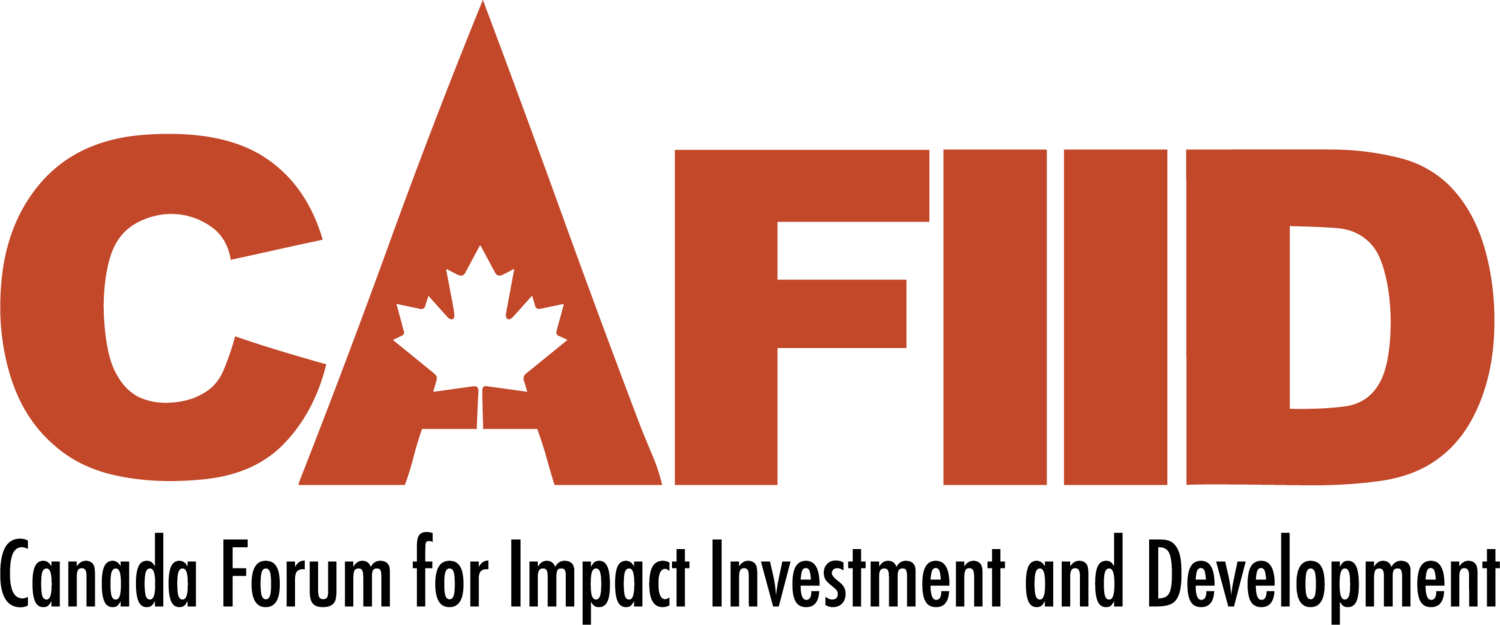Katie Turner
Katie Turner is an independent consultant, working with clients in a variety of areas including gender lens investing, ecosystem development, climate finance, market systems development, ESG integration, impact management and program design and development. Prior to that, she worked with Mennonite Economic Development Associates (MEDA) for over 15 years, including senior leadership and technical roles where she provided strategic direction and business development across LAC, Asia Pacific and Eastern Europe to further MEDA’s work in blended finance, GLI, gender-smart TA, and the gender-environment nexus. Katie serves on the board of the Canadian Forum for Impact Investment and Development (CAFIID). She holds an Honours BA in Economics and a Postgraduate Degree in International Development. She is fluent in English and Spanish.
Voting member: Katie Turner
Meet a member: Katie Turner
What recent work are you most proud of?
As an independent consultant, my work focuses primarily on gender lens investing (GLI). This includes a range of areas: carrying out gender assessments and action plans for private firms, developing GLI training curriculum, integrating GLI themes into the design of new programs, researching emerging trends in GLI or evaluating the GLI aspect of a program.
I am proud to have had the opportunity over the past two years to contribute to the advancement of GLI. For example, as part of the GAC-funded Accelerating Women Climate Entrepreneurs (AWCE) project that wrapped up last year, I worked with WUSC and a team of researchers to highlight the critical role that women play in addressing climate change. We met amazing women climate entrepreneurs across Sub Saharan Africa and were able to understand the significant challenges they face in growing their businesses. We published several reports with recommendations on how donors and incubators / accelerators can better integrate the women in their climate work (“Towards a Gender Transformative Climate Finance Roadmap: An Ecosystem Approach to Inclusive, Equitable and Transformative Change for Women Climate Entrepreneurs”; “Strategies for Incubators and Accelerators: Strengthening Ecosystems for Women Climate Entrepreneurs in Sub-Saharan Africa).
What challenges and barriers are you working on addressing?
While GLI continues to gain momentum, there continues to be this idea that gender equality will increase by simply moving large volumes of capital to women and increasing the number of women represented at different levels of a company. Much more is needed. It’s not just about counting the number of women reached, or even ensuring that women have access to capital. We need to make sure that capital is designed in a way that truly meets the needs of women. And to do that we need to engage gender experts who can help us to understand and analyze the gender related barriers that women are facing – for example, many women don’t have land titles and as such struggle to meet collateral requirements for loans; women entrepreneurs often face sexual harassment during the loan application process; investors (mainly men) often hold all the power, and entrepreneurs (especially women) are often left feeling they need to accept capital at terms that don’t actually work for them.
‘Fix the capital, not the company’ is a fantastic term coined by Joy Anderson, a GLI thought leader and founder of the Criterion Institute. It perfectly reflects the need to focus on the process of how we design capital to meet the needs of the target entrepreneurs, as opposed to adapting the company to fit into rigid capital structures.
What are you looking forward to in the coming months?
I am incredibly excited about the work we are doing now to super charge CAFIID’s GLI Community of Practice (GLI CoP). It was launched in 2021, includes over 30 CAFIID members and is a fantastic way to connect with CAFIID colleagues, learn about and discuss best practices in GLI.
Earlier this year, CAFIID received a grant from the Government of Canada’s Investment Readiness Program. These funds are being used to amplify the work of the GLI CoP – we are developing case studies, upgrading our website to feature our GLI work more prominently and organizing in-person and online events. I am playing a role in this and am excited to contribute to increasing the awareness of GLI amongst CAFIID members as well as the Canadian social finance community. Stay tuned for upcoming announcements on these events and activities!
What is your call to action for our membership?
Get curious about gender lens investing. If GLI is not yet part of your work, start thinking about how it can be. GLI is complex, but you have to start somewhere. Take advantage of the GLI CoP to learn and connect with amazing colleagues in this space.
Engage gender experts throughout the investment process. These are the people and/or women’s rights organizations who have a deep understanding of gender dynamics and social norms and can help to integrate these complex issues into the investment process. Their expertise has been significantly undervalued to date, but they are critical to ensuring that GLI meaningfully contributes to gender equality. Here’s a great quote that cuts to the chase: “you wouldn’t discuss climate finance without a climate expert in the room, so why is this still happening with gender?”
If you have any questions about this or want to learn more about GLI, reach out to me (kathrynbturner1@gmail.com) and I will connect you with the CoP.
Updated December 2023

